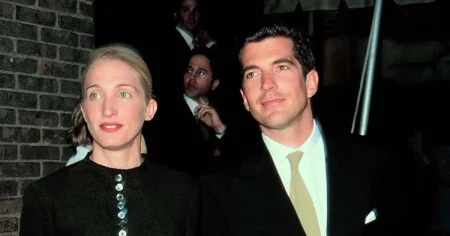Mädchen Amick, the celebrated actress, has embarked on a 13-year odyssey navigating the complexities of bipolar I disorder alongside her son, Sly. This journey, while fraught with challenges, has evolved into a testament to resilience, familial support, and the transformative power of lived experience. Amick emphasizes the importance of perspective, viewing the trajectory of Sly’s mental health not as a series of isolated incidents, but as a continuous graph demonstrating gradual improvement. This long-term view allows the family to weather the inevitable dips and destabilizations with greater composure, recognizing them as temporary setbacks within a larger, upward-trending narrative of progress and recovery.
Sly’s journey began in 2012 with his diagnosis while in college. Despite initial struggles, he has achieved remarkable milestones, including maintaining sobriety and embracing a career as a certified peer specialist. This role allows him to utilize his personal experiences to support young people grappling with similar mental health challenges, offering empathy and guidance born from his own battles. Amick describes this as a profoundly moving experience for Sly, who sees reflections of his younger self in the individuals he mentors, fostering a sense of purpose and fulfillment in his recovery journey. This commitment to helping others reinforces the positive cycle of healing and underscores the potential for growth even amidst adversity.
The family’s approach to Sly’s mental health emphasizes open communication, proactive intervention, and a strong support system. Recognizing the tendency for individuals to downplay their struggles, the family has established a culture of trust where they can openly express concerns and offer support without judgment. This proactive approach allows them to identify early warning signs of destabilization and intervene before a full-blown crisis emerges. Sly’s trust in his family, coupled with his commitment to maintaining his recovery plan, which includes regular AA meetings and consistent communication with his psychiatric team, strengthens his overall resilience and ability to manage his bipolar disorder effectively.
The Amick family’s commitment to mental health advocacy extends beyond their personal sphere. Drawing upon their lived experiences, they founded the Don’t MiND Me foundation, a vital resource providing support and scholarships for those struggling to access mental health care. The foundation embodies their belief in the transformative power of shared experiences and aims to break down the stigma surrounding mental illness. Their ultimate goal is to establish a treatment center informed by their own journey, offering a comprehensive and compassionate approach to care that addresses the multifaceted needs of individuals and their families.
The foundation’s annual gala serves as a platform to celebrate individuals making significant contributions to mental health advocacy. The upcoming 2025 gala will honor Ashley Kolaya, director of the Mental Health Storytelling Coalition, and Molly Ringwald, Amick’s former Riverdale co-star. Ringwald’s openness about her struggles with anxiety, particularly during her rise to fame, resonates with the foundation’s mission to destigmatize mental health challenges and highlight the importance of seeking support. Her willingness to share her story exemplifies the courage and vulnerability that fuels meaningful conversations and fosters greater understanding.
The Amick family’s story is a powerful reminder that mental illness is not a solitary struggle but a shared journey. Through open communication, proactive support, and a commitment to advocacy, they have transformed their personal experiences into a force for positive change. The Don’t MiND Me foundation serves as a beacon of hope, demonstrating the transformative potential of lived experience and the importance of creating a supportive community for those navigating the complexities of mental health challenges. Their ongoing dedication to raising awareness, providing resources, and fostering open dialogue contributes significantly to the broader movement towards greater understanding and acceptance of mental illness.















